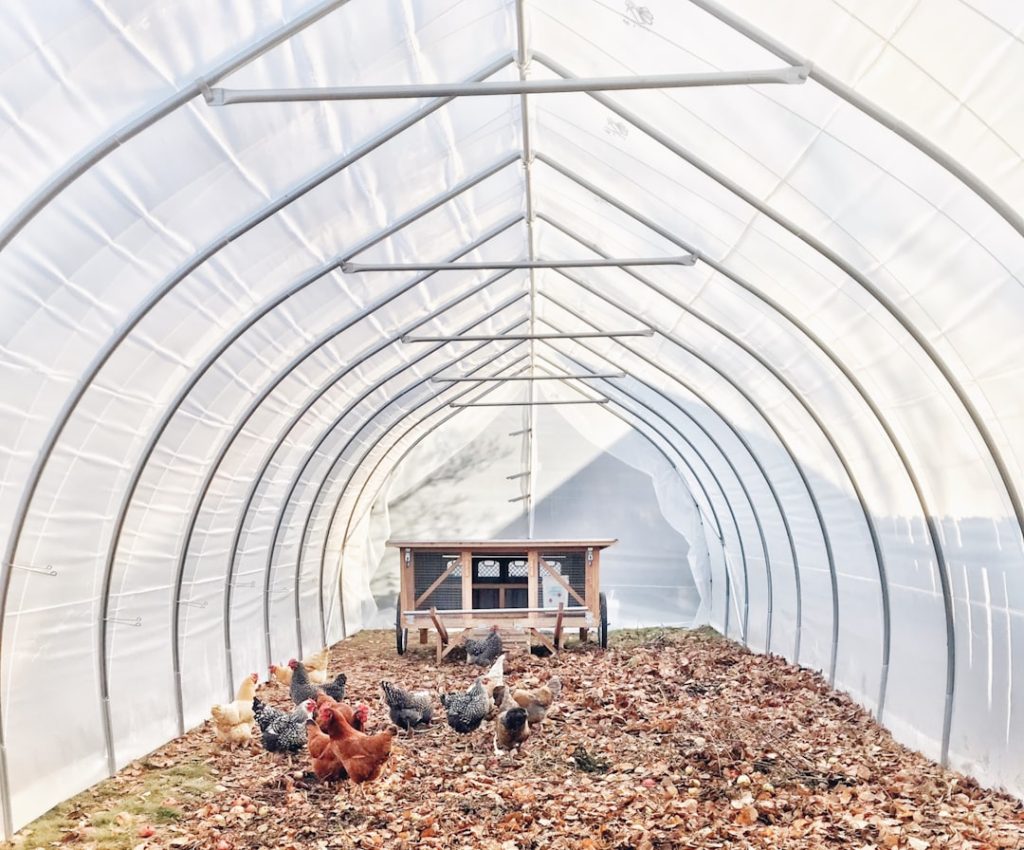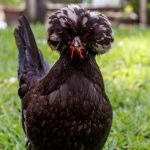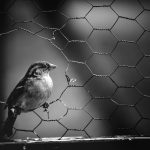When selecting chicken breeds for a backyard flock, several factors should be considered. Climate is a crucial consideration, as some breeds are better adapted to cold weather, while others thrive in warmer conditions. The intended purpose of the flock is also important, whether it’s for egg production, meat production, or companionship.
Different breeds excel in these areas, with some known for high egg production, others for meat quality, and some for friendly dispositions. Space availability is another key factor. Certain breeds are more suitable for confined areas, while others require more room to roam and forage.
Noise levels should be taken into account, especially in urban or suburban settings where quieter breeds may be preferable to maintain good relationships with neighbors. The size of the birds is also significant. Larger breeds like Orpingtons or Brahmas are often chosen for meat production and tend to be more docile.
Smaller breeds such as Leghorns or Easter Eggers are typically prolific egg layers and display more active, independent behaviors. Temperament and compatibility within a flock are important considerations. Some breeds can be more aggressive or dominant, which may cause issues in mixed flocks.
The breed’s foraging ability and adaptability to free-range environments should be evaluated if this is desired. Ultimately, the ideal breed for a backyard flock depends on specific needs and preferences. Thorough research is essential to make an informed decision that aligns with the keeper’s goals and circumstances.
Table of Contents
- 1 Coop and Run Setup
- 2 Feeding and Watering
- 3 Health and Safety
- 4 Egg Collection and Care
- 5 Managing Waste and Odor
- 6 Integrating Chickens into Garden Ecosystem
- 7 FAQs
- 7.1 What are the benefits of keeping chickens in my garden?
- 7.2 What do I need to consider before keeping chickens in my garden?
- 7.3 What kind of housing do chickens need in a garden?
- 7.4 What do chickens eat and how do I provide for them in my garden?
- 7.5 How do I keep my garden safe from chickens?
- 7.6 How do I maintain the health and well-being of chickens in my garden?
Key Takeaways
- Consider the climate, space, and purpose of raising chickens when choosing the right breed for your backyard.
- Provide a secure and spacious coop and run setup to protect chickens from predators and provide ample space for exercise.
- Ensure a balanced diet for chickens with a mix of commercial feed, kitchen scraps, and access to fresh water at all times.
- Regularly monitor the health of chickens and implement safety measures to prevent common issues such as parasites and diseases.
- Collect eggs daily, clean them if necessary, and store them properly to ensure freshness. Also, provide proper care for broody hens and chicks.
- Implement proper waste management and odor control strategies to maintain a clean and healthy environment for both chickens and garden ecosystem.
Coop and Run Setup
Coop Essentials
When it comes to the coop, it’s essential to provide at least 2-3 square feet of space per bird, as well as nesting boxes for egg-laying. The coop should also be well-ventilated and predator-proof, with secure latches and locks to keep out unwanted visitors. Additionally, provide roosting bars for the chickens to perch on at night, as well as bedding material such as straw or wood shavings for comfort and cleanliness.
Run Requirements
In terms of the run, it’s important to provide at least 10 square feet of space per bird to allow for ample room to roam and forage. The run should be enclosed with a secure fence to keep out predators, and it’s a good idea to bury the fence underground to prevent digging from predators like foxes or raccoons.
Additional Considerations
Provide plenty of shade and shelter within the run, as well as enrichment such as perches, dust baths, and toys to keep the chickens entertained. It’s also important to regularly clean and maintain the coop and run to prevent the buildup of waste and odor, which can attract pests and lead to health issues for the chickens. Overall, a well-designed coop and run setup is essential for the health and happiness of your backyard flock.
Feeding and Watering
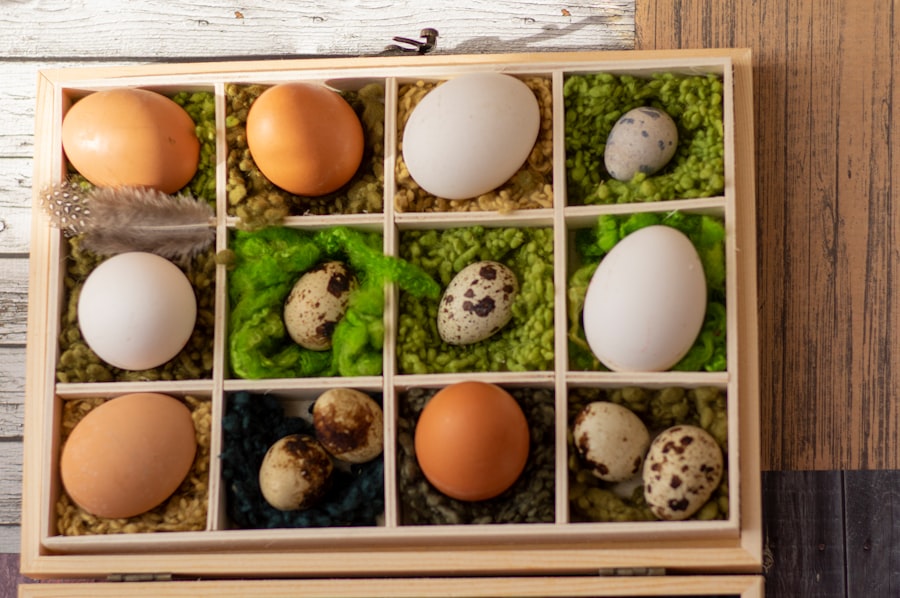
Proper feeding and watering are essential for maintaining the health and productivity of your backyard chickens. When it comes to feeding, it’s important to provide a balanced diet that meets the nutritional needs of your birds. This typically includes a commercial layer feed that is specifically formulated for egg-laying hens, as well as access to fresh greens, fruits, and vegetables for added nutrients.
Additionally, provide access to grit or oyster shells to help with digestion and calcium absorption for strong eggshells. It’s also important to monitor the amount of feed given to prevent overeating and obesity, as well as to prevent food waste. In terms of watering, it’s important to provide clean and fresh water at all times.
This can be done through a gravity-fed waterer or a traditional water dispenser, but it’s important to regularly clean and refill the water containers to prevent contamination and disease. Additionally, consider adding apple cider vinegar or electrolytes to the water to promote hydration and overall health. It’s also important to monitor water consumption to ensure that all birds have access to an adequate amount of water.
Overall, proper feeding and watering are essential for maintaining the health and productivity of your backyard flock.
Health and Safety
Maintaining the health and safety of your backyard flock is essential for their overall well-being. One of the most important aspects of chicken health is disease prevention. This can be done through regular health checks, vaccinations, and biosecurity measures such as quarantining new birds before introducing them to the flock.
Additionally, it’s important to keep the coop and run clean and free of waste buildup, which can attract pests and lead to disease transmission. Regularly inspect your birds for signs of illness or injury, such as lethargy, abnormal droppings, or changes in behavior, and seek veterinary care if necessary. Another important aspect of chicken health is predator prevention.
This can be done through secure fencing and coop construction, as well as using deterrents such as motion-activated lights or sound devices. It’s also important to regularly inspect the coop and run for signs of damage or entry points for predators, and make repairs as needed. Additionally, consider using guard animals such as dogs or guinea fowl to help deter predators from entering the property.
Overall, maintaining the health and safety of your backyard flock requires diligence and proactive measures to prevent disease and predation.
Egg Collection and Care
Collecting eggs from your backyard flock is an exciting part of keeping chickens, but it’s important to do so properly to ensure egg quality and safety. When collecting eggs, it’s important to do so at least once a day to prevent them from being damaged or eaten by other birds. Use a clean basket or container to collect the eggs, being careful not to stack them too high or place heavy objects on top of them.
It’s also important to handle the eggs gently to prevent cracking or breaking the shells. Once collected, it’s important to store the eggs properly to maintain their freshness and quality. Store eggs in a cool, dry place away from strong odors or direct sunlight, such as in a refrigerator or cool pantry.
It’s also important to regularly inspect the eggs for any signs of damage or spoilage before consuming them. Additionally, consider washing the eggs before use if they are visibly dirty, but avoid washing them if possible as this can remove the natural protective coating on the shells.
Managing Waste and Odor
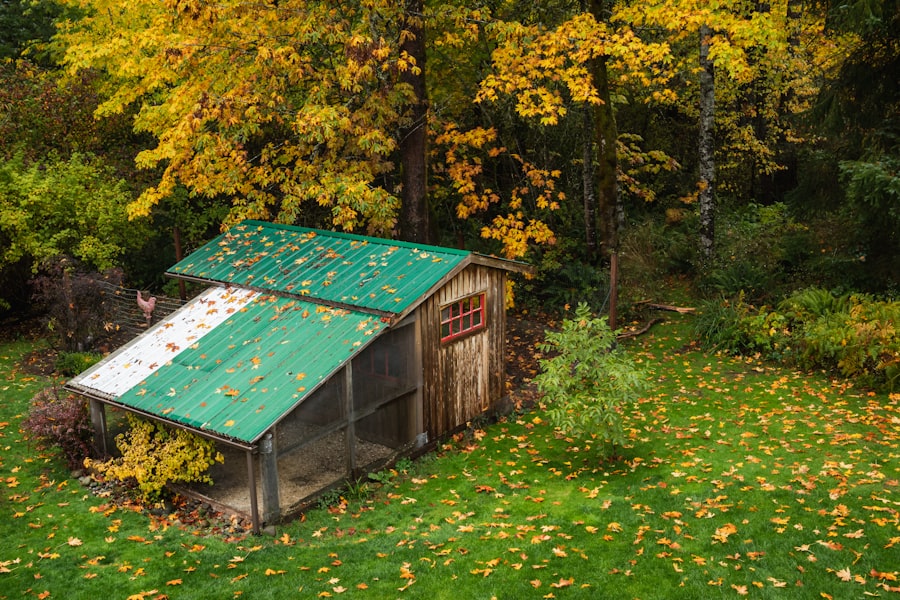
Regular Cleaning is Key
One way to manage waste is through regular cleaning of the coop and run. This includes removing soiled bedding material, droppings, and uneaten food on a regular basis to prevent the buildup of waste and odor.
Deep Litter Methods and Composting
Consider using deep litter methods in the coop, which involves adding new bedding material on top of old material rather than completely replacing it each time. Another way to manage waste is through composting. Chicken manure is a valuable source of nutrients for gardens and can be composted with other organic materials to create nutrient-rich fertilizer for plants.
Natural Odor Control Methods
Consider setting up a composting system in your garden or using a designated compost bin specifically for chicken waste. Additionally, consider using natural odor control methods such as adding herbs or essential oils to the coop bedding or using natural odor-absorbing materials such as diatomaceous earth.
Integrating Chickens into Garden Ecosystem
Integrating chickens into your garden ecosystem can have numerous benefits for both your plants and your flock. Chickens are natural foragers and can help control pests such as slugs, snails, and insects that can damage plants. Consider allowing your chickens access to certain areas of the garden where they can help with pest control while also providing them with additional foraging opportunities.
Additionally, chicken manure is a valuable source of nutrients for plants and can be used as fertilizer in the garden. Consider using chicken manure in compost or as a top dressing for plants to provide them with essential nutrients for growth. It’s important to use chicken manure responsibly by allowing it to compost properly before use to prevent burning plants with high levels of nitrogen.
Overall, integrating chickens into your garden ecosystem can create a mutually beneficial relationship where both plants and chickens thrive. Consider creating designated areas within the garden where chickens can forage while also protecting sensitive plants from potential damage. With proper management and consideration, integrating chickens into your garden ecosystem can be a rewarding experience for both you and your flock.
If you’re looking for tips on how to keep chickens in your garden, you might also be interested in learning about how to convert a shed into a chicken coop. This article provides helpful information on repurposing an existing structure to create a comfortable and functional living space for your feathered friends.
FAQs
What are the benefits of keeping chickens in my garden?
Keeping chickens in your garden can provide several benefits, including fresh eggs, natural pest control, and fertilizer for your garden.
What do I need to consider before keeping chickens in my garden?
Before keeping chickens in your garden, you need to consider local regulations, space requirements, predator protection, and the time and effort required for their care.
What kind of housing do chickens need in a garden?
Chickens need a secure coop for roosting and laying eggs, as well as a fenced outdoor area for foraging and exercise. The coop should provide protection from predators and the elements.
What do chickens eat and how do I provide for them in my garden?
Chickens eat a variety of foods, including commercial feed, kitchen scraps, and foraged insects and plants. You can provide for them in your garden by setting up feeding stations and allowing them to forage for bugs and plants.
How do I keep my garden safe from chickens?
To keep your garden safe from chickens, you can use fencing, raised beds, and other barriers to prevent them from accessing areas where they could cause damage.
How do I maintain the health and well-being of chickens in my garden?
To maintain the health and well-being of chickens in your garden, you should provide them with a balanced diet, clean water, regular health checks, and a clean living environment. It’s also important to provide them with opportunities for exercise and social interaction.
Meet Walter, the feathered-friend fanatic of Florida! Nestled in the sunshine state, Walter struts through life with his feathered companions, clucking his way to happiness. With a coop that’s fancier than a five-star hotel, he’s the Don Juan of the chicken world. When he’s not teaching his hens to do the cha-cha, you’ll find him in a heated debate with his prized rooster, Sir Clucks-a-Lot. Walter’s poultry passion is no yolk; he’s the sunny-side-up guy you never knew you needed in your flock of friends!

